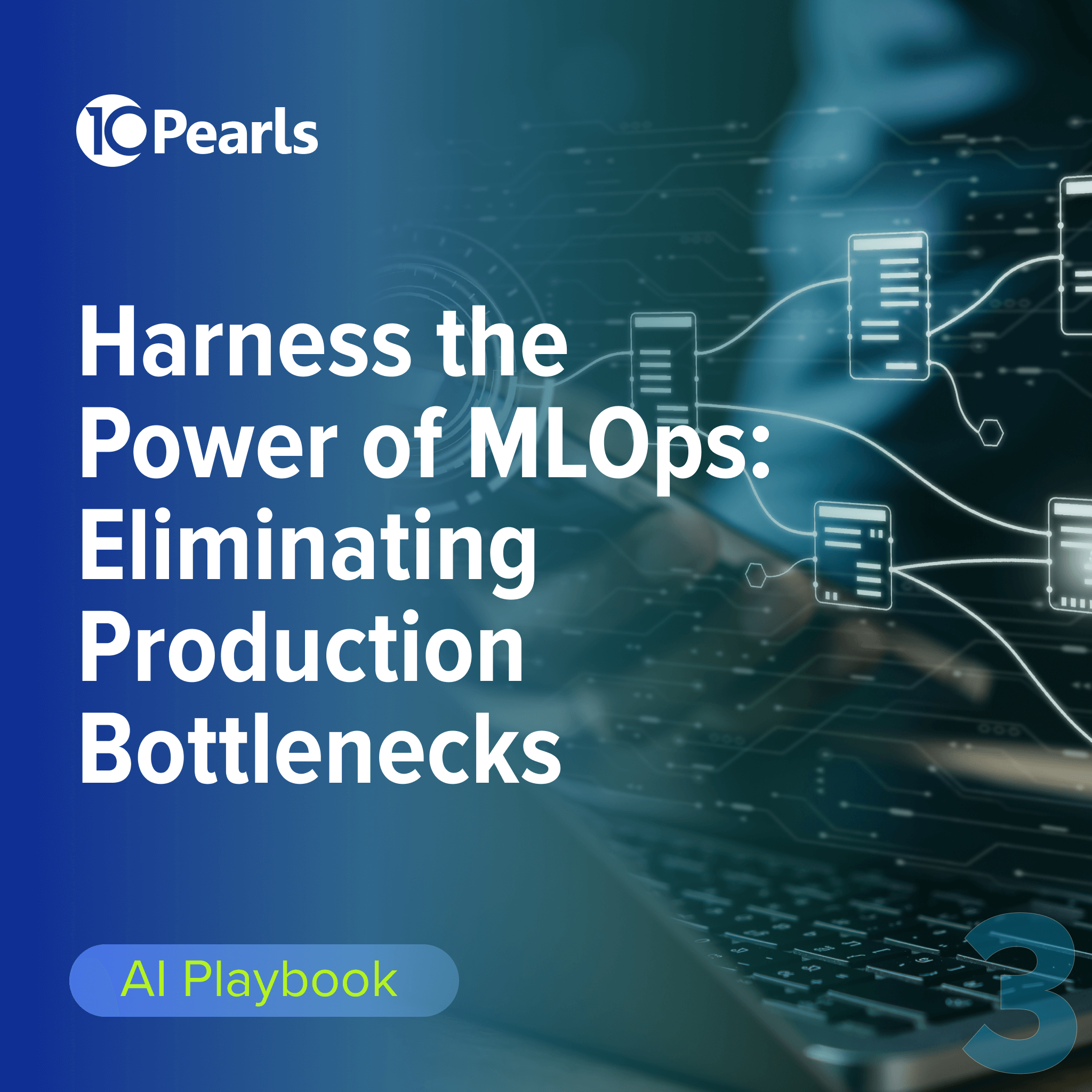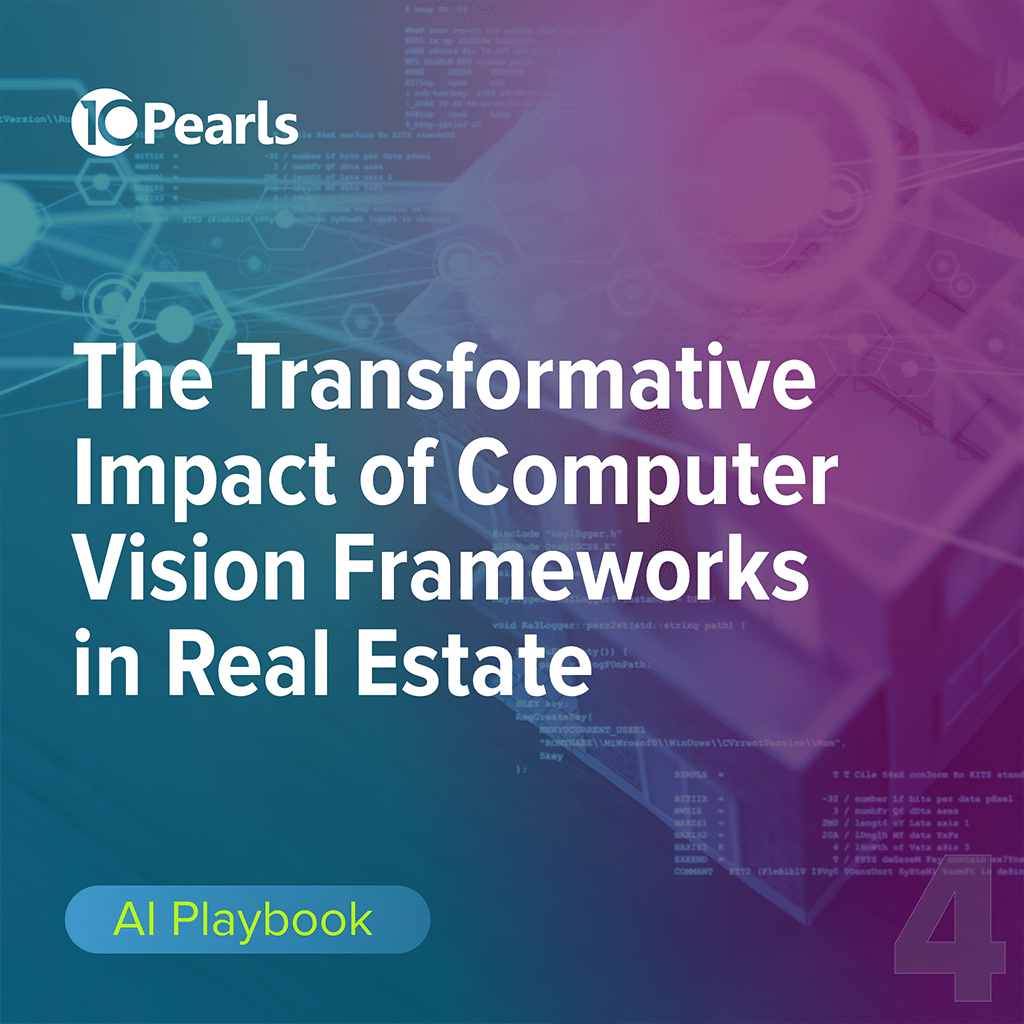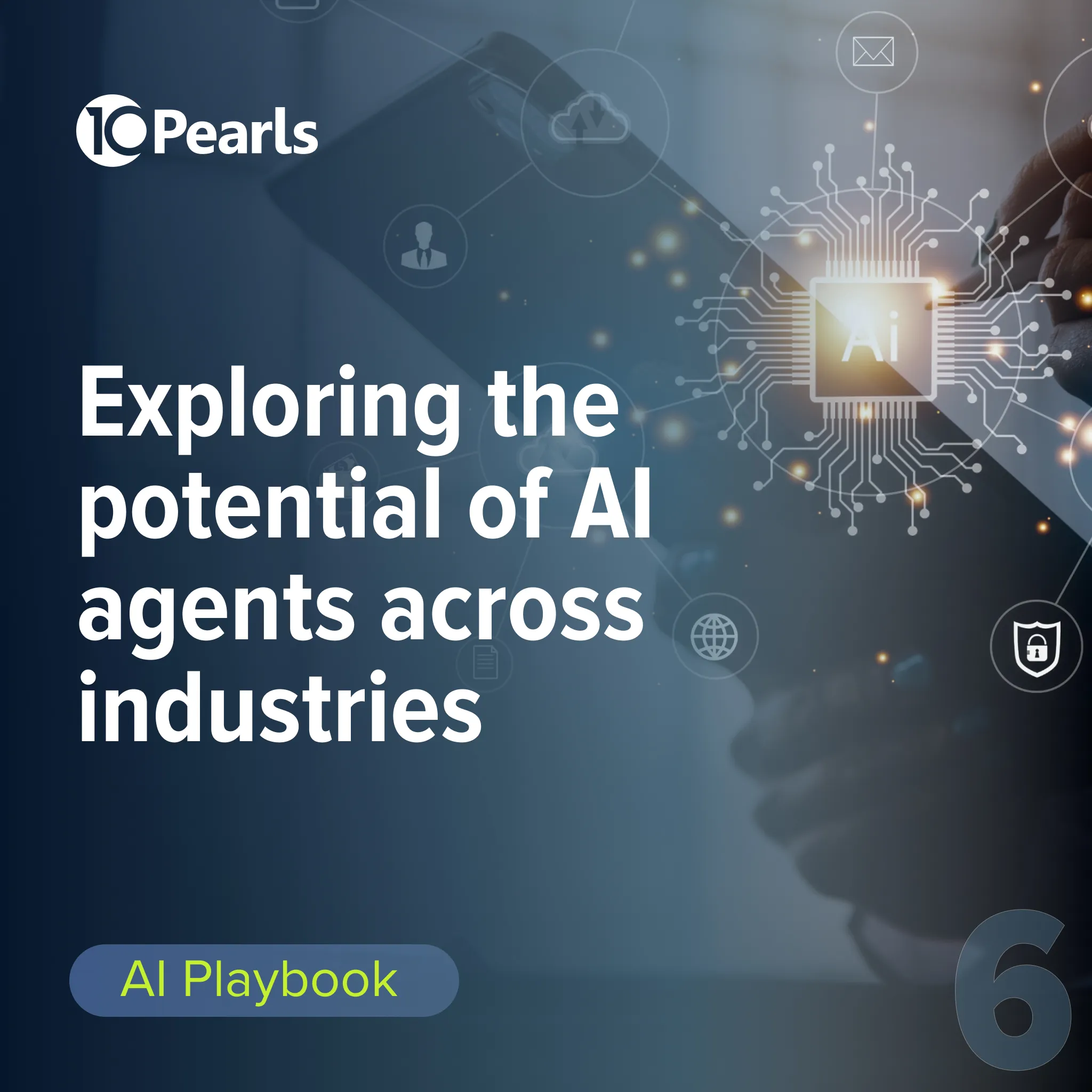The Top Healthcare Software Development Companies of 2026
- This blog is updated on january 07, 2026
By 10Pearls editorial team
A global team of technologists, strategists, and creatives dedicated to delivering the forefront of innovation. Stay informed with our latest updates and trends in advanced technology, healthcare, fintech, and beyond. Discover insightful perspectives that shape the future of industries worldwide.


The healthcare industry continues to innovate with advanced and emerging technologies like AI/ML (artificial intelligence and machine learning), IoT (Internet of Things), and AR (augmented reality) that improve patient care, health outcomes, and productivity. Internal IT teams often struggle to keep up with the rapid pace of change while continuing to support day-to-day operations. This challenge is pushing healthcare organizations to increasingly rely on software development outsourcing, with the healthcare IT outsourcing market expected to exceed $127.34 billion by 2034.
Working with the right healthcare software companies can help healthcare groups adopt new technologies fasterand significantly improve ROIs. This blog compares the top healthcare software development companies in 2026 to help you choose the right one for your project.
The table below compares the top software development companies for the healthcare industry in 2026.
The state of healthcare software development in 2026
Rapid advancements in technology and AI have enabled the healthcare industry to transform operations and services by implementing custom solutions that integrate AI, ML, automation, and analytics to improve personalization, machine learning, automation, personalization, and data analytics to improve patient care, service delivery, and health outcomes.
Healthcare software development is no longer just about digitizing processes and simple automations of routine tasks. AI-augmented solutions have enabled complex automations and permeated everything from clinical decision-making to diagnostics.
Healthcare software development trends 2026
AI and ML augmentation in healthcare software development is expected to be one of the most significant overarching trends in 2026. With the maturity of AI in general and of specific implementations like agentic AI, we may see more niche trends as well. There are also some broad-spectrum development and outsourcing trends that will impact healthcare software development.
Governance-focused healthcare software development is already gaining traction, and as AI regulation evolves, we may see healthcare-specific provisions.
What challenges do Internal healthcare IT teams face?
Internal IT teams often struggle to keep up with the rapid pace of change while supporting day-to-day operations. This challenge is pushing healthcare organizations to increasingly rely on custom software development and outsourcing, with the healthcare IT outsourcing market expected to reach USD 122.72 billion by 2032.
Healthcare IT teams face a wide range of challenges when it comes to meeting the software development needs of the organizations. This includes:
Why Healthcare Companies Need Software Services
Healthcare enterprises seek custom software to streamline operations, improve patient outcomes, reduce costs, ensure regulatory compliance, manage complex data, and enable data-driven clinical decisions.
Common types of software and AI solutions in healthcare
Well-designed healthcare technology transforms patient care through integrated user-centered digital solutions. Modern software streamlines workflows, enhances decision-making, and improves outcomes, addressing challenges in accessibility, efficiency, and quality while reducing costs.
A few common types of healthcare software being developed are:
Electronic Health Records (EHR)
EHR systems digitize patient information and create comprehensive medical histories that can be accessed across departments and facilities. They enable real-time data sharing, reduce errors, support clinical decisions, and streamline documentation.
Telemedicine and Virtual Care Platforms
Virtual care platforms connect patients with providers remotely via video consultations, chatbots, messaging, and remote monitoring. These solutions expand access, reduce travel burdens, enable specialist consultations, and support continuous care management.
AI-Driven Clinical Decision Support
AI systems analyze large amounts of medical data to identify patterns, suggest diagnoses and treatment options, flag potential drug interactions, predict complications, and recommend interventions, assisting physicians and reducing errors.
Patient-Facing Solutions
Mobile apps and patient portals allow individuals to proactively manage healthcare with features like appointment scheduling, prescription refills, test result viewing, symptom tracking, and secure messaging with providers.
Revenue Cycle Management (RCM) and Billing Automation
RCM software reduces billing errors, accelerates reimbursements, and optimizes revenue capture by automating claim submissions, eligibility verification, and payment processing.
Medical Imaging
Advanced imaging software uses AI to improve image quality, analyze faster, and detect abnormalities. It assists radiologists in identifying tumors, fractures, and diseases earlier and more accurately.
Data Analytics
Healthcare analytics transform raw data into actionable insights for health management, clinical research, and operational efficiency. Analytics can reveal care gaps, predict readmissions, optimize resources, and support care initiatives.
Cloud-Based Solutions
Cloud infrastructure offers scalable, secure healthcare data storage and processing. This leads to reduced costs, easier data recovery, better collaboration across locations, and faster deployment of new applications. Cloud platforms also ensure HIPAA compliance while enabling innovative healthcare delivery models.
How to Choose a Healthcare Software Development Partner
Selecting the right healthcare software development company requires evaluation of multiple critical factors. Success depends on finding the right combination of healthcare expertise, technical excellence, regulatory knowledge, and proven delivery capabilities. The right partnership ensures that solutions meet clinical and user needs while remaining compliant.
Domain Knowledge
Healthcare software development requires deep understanding of healthcare processes, clinical workflows, medical terminology, and industry regulations. Partners with healthcare experience can navigate complex regulatory requirements effectively, align with user needs, and design intuitive interfaces that fit naturally into clinical practice, reducing training time and improving adoption.
Technical Expertise
Successful healthcare solutions require proficiency in modern technologies, interoperability standards like HL7/FHIR, and security protocols. Partners should demonstrate expertise in relevant programming languages, database management, API integration, and scalable architecture to ensure future-proof solutions that can scale with evolving needs.
Legacy capabilities
Many healthcare organizations struggle with legacy architecture and systems that are compliant but not easily integrated with modern solutions. Mature development companies offer legacy capabilities, allowing them to surface data and decisions from legacy systems without sidestepping governance.
AI capabilities
AI is becoming a critical part of healthcare software development, with a wide range of solutions being integrated with AI capabilities. Prospective healthcare software development companies shouldn’t just have AI development capabilities but also understand crucial nuances like the importance of explainability in healthcare decision-making, accountability distribution, regulatory requirements that need to be embedded in software architecture, and infrastructure/middleware capabilities to make AI work with legacy systems.
Integration and interoperability
The right healthcare software development companies focus on integration and interoperability from day one, and it’s not limited to standards like HL7 and FHIR. They ensure secure and seamless interoperability among different HIPAA-approved cloud deployments, secure third parties for data and analytics capabilities, and help with federated data pooling for both AI and analytics, with robust privacy controls in place.
Compliance and Security
Healthcare partners must ensure HIPAA compliance, GDPR compliance, data implement, and robust security measures throughout the development lifecycle. They should possess a deep understanding of all relevant regulatory frameworks, which now includes AI governance and privacy regulations. They should also, implement comprehensive audit trails, and maintain certifications. Security expertise ensures sensitive patient data is protected from breaches preventing loss of trust and penalties.
Client Reviews and Reputation
Evaluate potential partners by reviewing client testimonials, portfolio, case studies, and industry recognition. Check references from similar healthcare projects and assess their delivery track record.
Ongoing Maintenance and Support
Healthcare systems require continuous updates for regulations, security patches, feature enhancements, and evolving requirements. Partners should offer comprehensive support plans, guaranteed response times, and proactive monitoring.
Communication and Engagement
Effective partners maintain transparent communication throughout development and beyond. They should provide regular updates, involve stakeholders in decisions, respond promptly to concerns, and demonstrate cultural and time zone fit with your organization.
Emerging Trends and Technology in Healthcare
Healthcare technology will continue to evolve through patient-centered innovations and AI integrations. Some of these key emerging trends in healthcare technology are given below.
AI as a Clinical Partner
AI can serve as an assistant and clinical partner by suggesting treatments, automating administrative tasks like scheduling and claims, enhancing diagnostic accuracy, generating clinical documentation via voice-enabled systems, and optimizing revenue cycles. These innovations reduce costs, minimize errors, improve patient care, and free healthcare professionals to focus on patients.
Predictive Analytics
Machine learning models forecast patient status, readmission risks, and disease progression. Predictive insights enable proactive care management and can significantly improve health outcomes.
Telehealth 2.0
Next-generation telehealth increasingly integrates AI diagnostics, remote monitoring, and virtual consultations. Advanced platforms provide seamless experiences, multi-provider coordination, integration with home devices, and comprehensive remote monitoring and care.
Additionally, wearables and IoT devices can continuously track vital signs, activity levels, and medication adherence. The data from these devices can be analyzed to personalize treatment plans, detect anomalies early, and initiate timely interventions.
Governance, Equity and Security Focus
Ethical AI governance, health equity initiatives, and cybersecurity resilience are key considerations for healthcare organizations. Comprehensive frameworks that ensure algorithmic fairness, address disparities in digital access, and protect against evolving threats will continue to be foundational elements of technology innovation. These measures help build and maintain trust while ensuring inclusive access and delivery of healthcare services.
Top healthcare software development companies 2026
| Company | Headquarters | Year founded | # of employees | Notable attributes |
| 1 10Pearls | Vienna, Virginia, USA | 2004 | 1,000+ | Renowned for its insights-driven, transformative healthtech solutions using advanced AI and ML technology. |
2 Sidebench | Los Angeles, California, USA | 2012 | 50+ | Known for its design and UX/UI capabilities that make healthcare software more intuitive for end-users. |
| 3 Sciencesoft | McKinney, Texas, USA | 1989 | 750+ | Has been a presence in the industry for almost 35 years. |
| 4 Vention | New York, New York, USA | 2002 | 3,000+ | Proven track record of delivery of large, complex software projects. |
| 5 Markovate | San Francisco, California, USA | 2015 | 50+ | Provides healthcare SaaS solutions using cutting-edge technology. |
| 6 Itransition | Decatur, Georgia, USA | 1998 | 3,000+ | The team has knowledge of healthcare technology. |
| 7 Innowise | Warsaw, Poland | 2007 | 1,600+ | Known for providing excellent project management. |
| 8 Chetu | Sunrise, Florida, USA | 2000 | 2,800+ | Delivers quality work for many different industries. |
| 9 Apzumi | Poznań, Poland | 2013 | 50+ | Recognized for its expertise in healthcare and compliance. |
| 10 Kanda Software | Boston, Massachusetts, USA | 1993 | 650+ | Supports Fortune 500 digital health clients. |
Data source: Clutch.co and provider websites.
Company Size: 1,000+ employees
Year Founded: 2004
Locations: USA (Eastern and Central time zones), Costa Rica, UK, Pakistan, Colombia, Peru
Specialties: Advanced technologies (data science, machine learning, and artificial intelligence), DevOps, agile software development & QA across healthcare.
Website: 10Pearls.com
10Pearls is a full-service AI-consultancy and digital engineering partner with extensive expertise in healthcare consulting, product innovation and software development. Its clients include healthcare payers and providers, such as amwell, village MD, HCSC, Elevance Health and AARP. With agile software development teams around the globe, 10Pearls can provide onshore, nearshore, and offshore outsourcing as well as 24/7 productivity to accelerate project releases. 10Pearls delivers advanced clinical innovation and transforms care operations through the development of insights-driven applications using advanced technology like generative AI, machine learning, and IoT (Internet of Things) to help drive digital engineering innovation across the healthcare industry.
Sidebench is a design-focused software development firm that creates custom solutions for healthcare clients. Its commitment to delivering optimal user experiences through intuitive user interface (UI) design makes it a good choice for onshore healthcare software development.
Company Size: 50+ employees
Year Founded: 2012
Locations: USA (Pacific time zone)
Specialties: UI/UX (user interface and user experience) design.
Website: Sidebench.com

Company Size: 750+ employees
Year Founded: 1989
Locations: USA (Eastern and Central time zones), Finland, Latvia, Lithuania, Poland, Saudi Arabia, United Arab Emirates
Specialties: Security and regulatory compliance.
Website: Scnsoft.com
ScienceSoft has been in the software development outsourcing industry since 1989. It provides onshore and offshore outsourcing services that focus heavily on security and compliance. ScienceSoft has expertise in the healthcare field, developing solutions aligned with healthcare regulations.
Vention is a technology company with 3,000 global talent bases for onshore, nearshore, and offshore outsourcing. Its healthcare portfolio includes virtual telehealth solutions and mobile pharmacy apps.

Company Size: 3,000+ employees
Year Founded: 2002
Locations: USA (Eastern and Pacific time zones), Mexico, UK, Austria, Germany, Poland, Lithuania, Uzbekistan, Slovakia, Kyrgyzstan, Bulgaria, Kazakhstan, Georgia, Cyprus
Specialties: Cloud and mobile application development.
Website: Ventionteams.com

Company Size: 50+ employees
Year Founded: 2015
Locations: USA (Pacific and Central time zones), Canada, India
Specialties: AI and ML
Website: Markovate.com
Markovate is a small onshore/offshore software development outsourcing company founded in 2015. Though a relative newcomer to the industry, the company is kickstarting its emerging healthcare tech development.
Itransition is an onshore/offshore/nearshore software development company with over 25 years of experience in the healthcare industry. Its healthtech portfolio includes solutions for telehealth, medical IoT, and HIPAA-compliant data collection.
Company Size: 3,000+ employees
Year Founded: 1998
Locations: USA (Eastern time zone), UK, Poland, Lithuania, United Arab Emirates, Mexico, Portugal, Georgia, Uzbekistan, Bangladesh
Specialties: Healthtech
Website: Itransition.com

Company Size: 1,600+ employees
Year Founded: 2007
Locations: USA (Eastern time zone), UK, Poland, Italy, France, Sweden, Norway, Lithuania, Georgia, United Arab Emirates
Specialties: EU healthcare compliance
Website: Innowise.come
Innowise provides onshore, offshore, and nearshore (for Europe) development services. Its talent pool of over 1,600 employees is primarily based in Europe, giving it expertise in EU data privacy regulations like the GDPR (General Data Protection Regulation).
Chetu is a software outsourcing company with US offices that provide onshore services in any time zone. It has created technology solutions for numerous healthcare, laboratory, and veterinary clients.

Company Size: 2,800+ employees
Year Founded: 2000
Locations: USA (Eastern, Central, Mountain, and Pacific time zones), UK, India
Specialties: Onshore software development outsourcing
Website: Chetu.com
Company Size: 50+ employees
Year Founded: 2013
Locations: USA, Poland, Germany
Specialties: Healthcare and HIPAA compliance
Website: Apzumi.com
Apzumi is a small software development firm that specializes in healthcare technology. It’s known for its substantial expertise in healthtech, creating HIPAA-compliant solutions for remote patient monitoring, insurance automation, augmented reality (AR), and much more.
Kanda Software is a US-based company with experience in the digital health industry. It specializes in providing QA (quality assurance) services and automated testing solutions for large healthcare organizations.
Company Size: 650+ employees
Year Founded: 1993
Locations: USA (Eastern time zone)
Specialties: QA and testing services
Website: Kandasoft.com
Make 10Pearls your software development outsourcing partner
10Pearls is a custom software development company helping healthcare providers and payers innovate with advanced technology. With a variety of outsourcing models, development locations, and engagement options, we tailor our digital engineering and quality assurance services to meet your unique needs and budget. Our expertise in healthcare and global team of top tech talent, 24-hour development cycles, and collaborative culture makes us one of the top healthcare software development companies for 2024. Reach out today to discuss your project with one of our healthcare software development experts.
Custom software development
Related articles
FAQs
What is the cost of healthcare software development?
Healthcare software development costs depend upon several factors, including regulatory requirements, complexity of integration with existing systems, number of user types, privacy measures, tech stack, and AI capabilities. Project scope and the number of resources required to develop the software may not be in your control, but good practices like preventing do-overs and multiple iterations by partnering with mature development companies may lead to better ROIs, even with higher upfront costs.
How should I choose a healthcare software development firm?
Prioritize companies with demonstrated healthcare expertise, HIPAA compliance, and FHIR experience. Evaluate portfolios for EHR systems, telemedicine platforms, and any other solutions similar to what you require. Verify understanding of clinical workflows, patient privacy, healthcare IT integration, and relevant certifications.
How long does a healthcare software development project take?
Healthcare software development timelines depend on several factors, including project complexity, integration requirements, number of iterations, regulation checks, etc. The typical range may vary from 3-6 months to multiple years.
Can healthcare software development companies help with regulatory compliance?
Yes, healthcare software development companies implement necessary security and data protection measures while staying up-to-date with evolving regulations to ensure solutions meet HIPAA, GDPR, FDA, and other healthcare standards.
What kind of healthcare businesses do healthcare software companies support within the industry?
Software companies with industry expertise support a wide range of healthcare businesses, including hospitals, clinics, health insurance companies, telehealth companies, life science and MedTech, pharmacies, public health organizations, and research facilities.
What kind of support is offered with healthcare software development?
Most healthcare software companies offer comprehensive post-deployment support, including ongoing maintenance, scaling to meet increased demand, and modification to accommodate changing parameters. The exact nature and depth of support services will depend upon the developer’s capabilities and the terms of your contract.
How do healthcare software development companies ensure privacy and security in their projects?
Companies specializing in healthcare software development strictly adhere to privacy directives like HIPAA, HITECH, GDPR in Europe, and other regional regulations. This ensures that privacy in these healthcare solutions is an architectural layer, not an add-on. The same applies to security, which is often embedded within software layers for a robust security posture.
What are the benefits of working with healthcare software development companies?
The right healthcare software company offers significant benefits compared to in-house development, including faster delivery, access to broader skill sets, more resilient builds, and post-deployment support.







